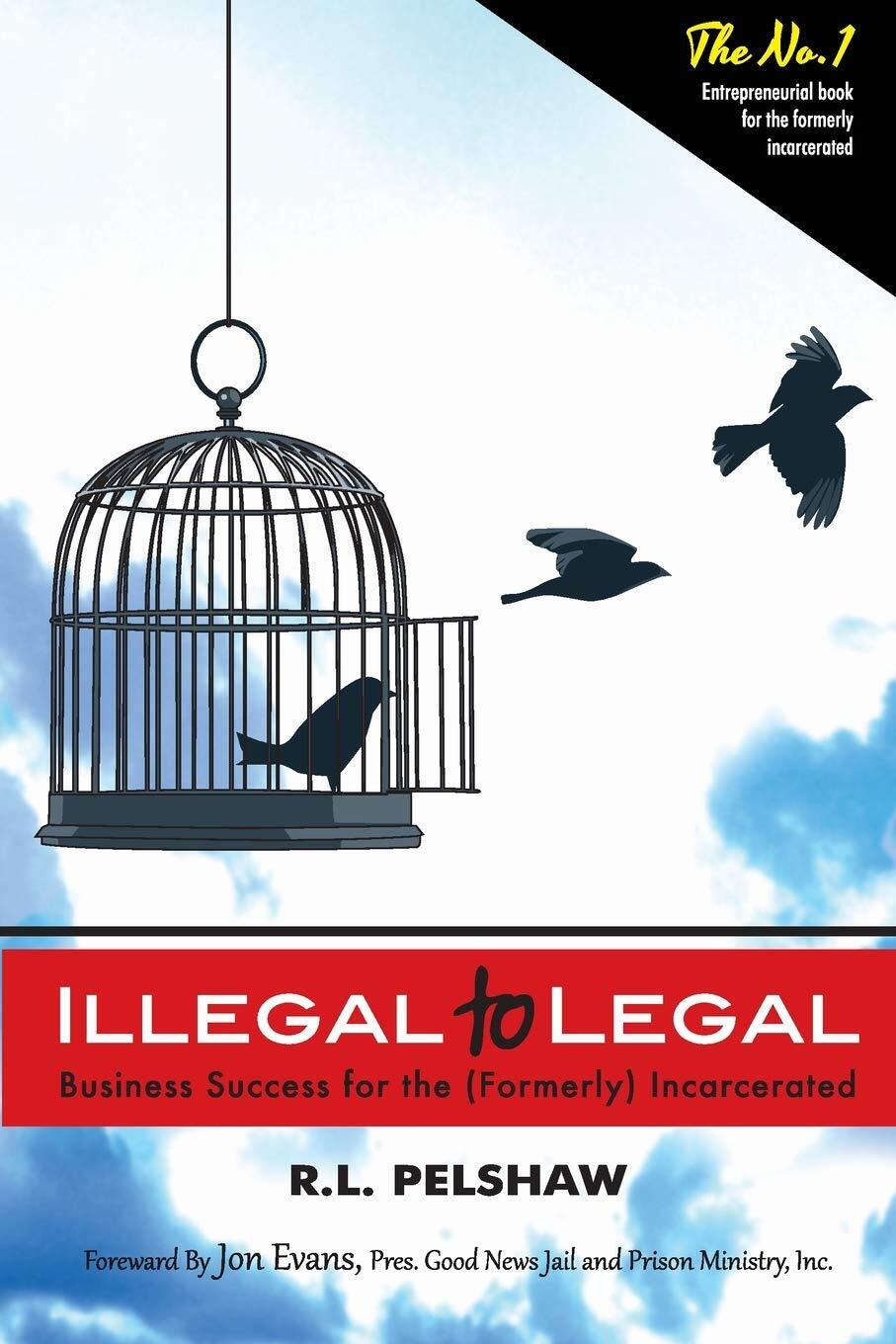This “Ask Bob” was inspired by a letter and Executive Summary of a business plan sent to me by Alan M. of the Idaho State Correctional Facility.
To me, writing business plans is like going to the dentist: you know you need it, but you hate doing it.
One of my favorite quotes comes from Coach John Wooden of the championship UCLA Men’s Basketball team who said, “failing to plan is planning to fail.”
When I served time at Leavenworth, I noticed most of my fellow residents had great business talent, which for many was only used on the street up until then. But most of the fellas dreamed of owning their own business someday, which I always thought was possible. My “hustle” inside Leavenworth was helping people write business plans, which is nearly impossible for people inside. After writing plans, which isn’t my favorite thing to do, I figured there had to be an easier way to accomplish the same thing. That’s why I made the Business Plan Checklisttm in my Illegal to Legal book and workbook to streamline the business planning process. You may not know this, but I wrote that book while serving my time. (I wrote the workbook after I was released).
I’ve written lots of business plans, and seen hundreds more, but even after all of that I still ask, “what’s the purpose of a business plan?”
Business plans come in all shapes and sizes, from some that are only 5-10 pages, to others that are highly detailed containing several hundred pages. Some business plans are to attract investors, or convince a banker, while others are only interested in the quickest way to make a business profitable. That’s the kind I encourage people to do, and what I focus on here. For returning citizens needing a source of income to keep off the streets I always steer towards taking steps to try to get you generating revenue as quickly as you can.
A good business plan will give an accurate picture of:
- The vision and purpose of the business
- Weaknesses of the Business
- The experience of the Owner(s)
- What the business needs
- How you will market & promote it
- How the business functions/operate
- What revenues can be realistically expected
- Projection of 1st year’s income & expense
- Strengths or unique talents of business
- Opportunities and Threats of the Business
- How you compare to competition
- What will be done once needs are met
- What you will do to launch it
- How the business will make money
- What you will do with those revenues
- 12-month summary of same for years 2&3
A good business plan should assume the reader doesn’t know anything about you or the business.
It should be engaging, yet detailed enough to tell your story, but not so detailed to allow readers to get lost or lose interest. Most importantly it should be written to be used as a tool as you launch your business and implement your plan. Be yourself, don’t try to impress anyone, but do make sure you fix misspelled words and grammatical errors.
When your Plan or Checklist are done, show it to people you trust to get their input on it but keep your ego out of it and don’t argue with someone that may not completely agree with your ideas. Who knows, they may give you good advice or a different perspective. I’ve written plans before and realized the business idea wasn’t as good as I thought it was, and I thanked God I did all that work first and dodged a bullet!
Business Plan Checklisttm
Even if you don’t intend to raise money or get a loan, doing a business plan or my Business Plan Checklisttm absolutely will help you know and manage steps needed to launch your business on the best possible foundation. A good plan will help you be organized enough to give you a path to launching and operating, while helping you identify what you need and what the business could potentially do (or not do).
When you are guessing at what your potential revenues, sales, and expenses will be, don’t be a super optimist like me: always try to plan for the worst-case scenario. Doing so will help you weather the storms that will come. If anyone knows how to weather storms, it’s those of us who have survived incarceration.
Like I’ve said: if you can survive jail or prison then you can survive, and do, ANYTHING! Including starting your own business.
© 2022 Pelshaw Group, Inc. Used with permission.
Ask Bob is an advice column by Bob Pelshaw, formerly incarcerated citizen, successful entrepreneur, speaker, and author of the award winning Illegal to Legal: Business Success for the (Formerly) Incarcerated. (Book and workbook available on Amazon). Bob also provides content to Edovo, GTL, PayTel, and jails and prisons nationally.
Ask Bob answers questions about life, successful re-entry, starting a business and entrepreneurship, and most anything that adds value, except the column does not cover legal issues, sentencing matters, or case issues. To ask Bob a question, write to him at:
ASK BOB
c/o Pelshaw Group, Inc.
PO Box 460671 Papillion, NE 68046



